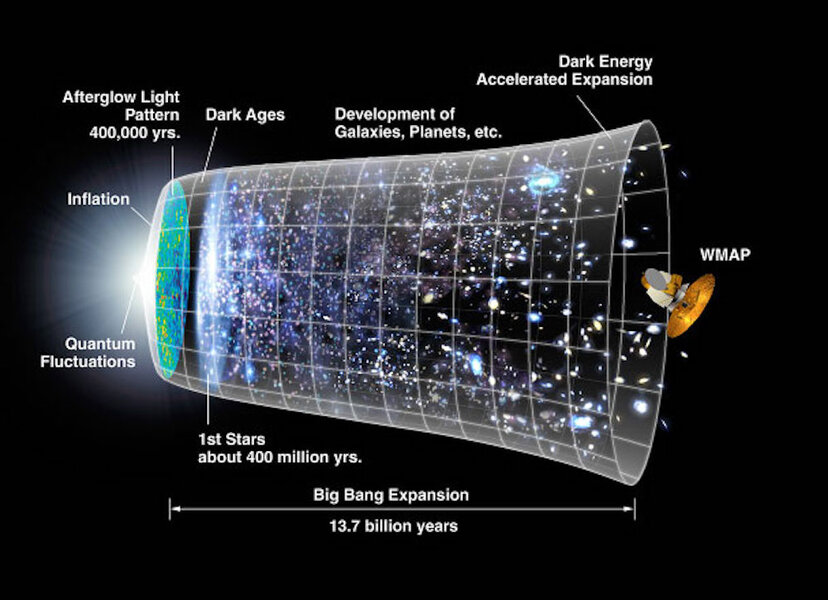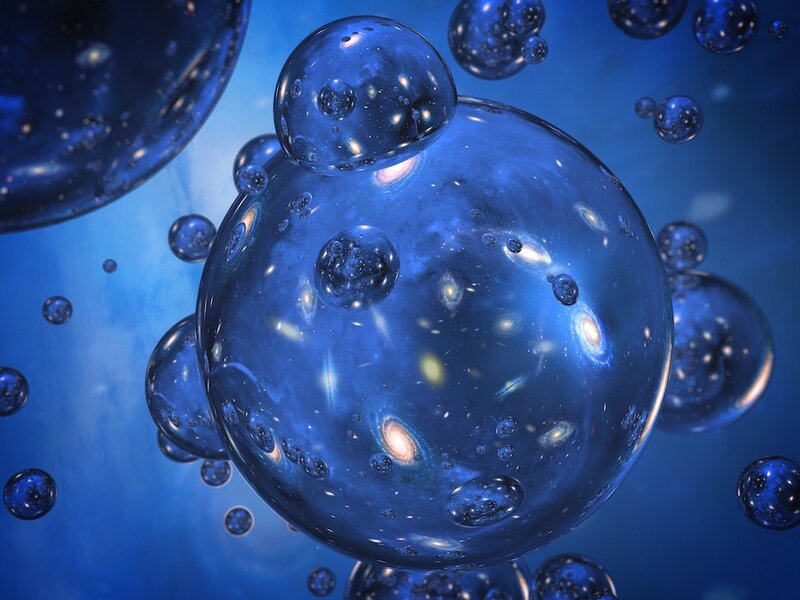Create a free profile to get unlimited access to exclusive videos, sweepstakes, and more!
Does the multiverse exist? The science behind 'Spider-Man: No Way Home'
The multiverse is a concept of which we know frighteningly little. But... we do know a little bit about it.

From the moment the credits rolled on Avengers: Endgame the Marvel Cinematic Universe took a hard left turn into multiverse territory. WandaVision toyed with the notion and Loki lived inside it. Now, Spider-Man: No Way Home is bringing the multiverse to the big screen.
An interconnected yet variable multiverse is the perfect storytelling vehicle for comic book tales, allowing for the various versions of characters to all live together in a shared space. Creators and fans can have their proverbial cake and eat it too, revisiting nostalgic characters while maintaining a consistent through line. It's the filmmaker's dream, but does it have any place in real-world science, or should it remain firmly in the realm of fiction? To quote Doctor Strange, "the multiverse is a concept of which we know frighteningly little." But... we do know a little bit about it. Or at least, we have some ideas.
WHY WE THINK THERE MIGHT BE A MULTIVERSE
We get it, the concept of a multiverse sounds like nonsense. It feels, emotionally, like the sort of thing made up by screenwriters to sell tickets to see characters we fell in love with twenty years ago. Or as a vehicle for Jerry O'Connell.
Believe it or not, there's a pretty good reason scientists believe the multiverse could exist, but to explain it we have to go back to the beginning. The very beginning.
Before the beginning there was nothing. Maybe. Actually, we're not quite sure what was going on. It's, like, a whole thing. But then there was a whole lot of stuff really, really fast, relatively speaking. In the moment after the Big Bang — lasting only a very tiny fraction of a second — the universe expanded like crazy due to a process known as cosmic inflation. Then it almost immediately cooled its jets. When that period was over, the universe was much larger than it was before, by a factor of 10^26. Precisely how big the universe was at that point depends largely on how big it was to start with, but we can put that aside. It's not important. Well, it is important, but its for better minds to work out.
What's important in the context of this discussion is that inflation happened at all, and we're pretty confident it did. It helps to explain a whole lot of stuff about the nature of our universe. Namely, it explains the pattern of temperatures in the cosmic microwave background. Distant regions can have similar compositions because only a fraction of a second ago they were smooshed up right next to each other.
If inflation was a one-off event which happened wholly in this universe, that would be enough to fuel a thousand PhD theses, but it might be even weirder. It might be that this sort of expansion is the gobstopper of cosmic processes, everlasting and eternal.
If eternal inflation occurs, it means that our universe is just a tiny bubble in the endless fractal pattern of reality. While our little nodule slowed down enough to create physics and people and taxes, the rest of reality kept racing onward. And more little bubbles pop off at intervals, creating entirely separate universes with their own physics which might be totally different from ours or completely the same.
That process repeats itself over and over forever until you end up with an infinite number of universes. And because infinity is infinite, some of those universes must necessarily be identical to our own, or else very nearly the same with minor differences. The natural consequence of which is an endless supply of yous doing you sorts of things. The multiverse in all of its wacky sci-fi glory.
It has an internal logic but is it testable? If a multiverse exists, could we ever hope to prove it?
TESTING THE MULTIVERSE
Listen, you're asking a lot. We have a hard time testing third graders on multiplication and they're sitting right there where we can see them. You want to know if another universe separated by a rapidly expanding cosmic sea of non-universe exists?
Fair enough.
Science, by definition, requires testable evidence. That ideas can be questioned and validated is precisely what makes it science and not conjecture. In that respect, the multiverse seems hard coded to lie outside of this process. If other universes are necessarily physically separate from our own, that makes it pretty difficult to poke and prod them, to see how they work or if they're even there at all.
Some scientists believe the evidence for inflation is evidence of the multiverse. That proving one is proving the other. Others look at the nature of our universe as evidence for others. Our planet appears at first glance to be perfectly suited for the emergence of life. It lies just the right distance from our star, it has just the right atmosphere. The Moon keeps our tilt steady, and the gas giants protect us from impacts. (Mostly — don't tell the dinosaurs.) There's a lot about our solar system that seems finely tuned. If this were the only solar system, it would seem statistically unlikely that everything turned out just right. But it isn't the only one.
We know now that there are trillions of planetary systems and it's likely that a great many of them aren't so nicely situated for the emergence of life. That at least one system would get the right roll of the dice among so many is less bizarre. The same might be true of the universe.
There are a number of physical truths that, if they were different, would spell the end of the universe as we know it. There's a certain sense in operating under the assumption that our universe is so finely tuned because there are a great many others which aren't. Still, that's not as satisfying as experimental confirmation.
One way we might be able to test for the existence of other universes involves collision. In the same way a car accident leaves scratches and dents in your new car, or an asteroid leaves a crater, if our universe bumped into another one, it should leave a sign.
That sign could take the form of a signature in the microwave background radiation, or it might result in gravity waves. Instead of directly observing another universe, we'd be looking at the shadow it left behind in its wake.
If it bothers you to consider the idea that there might be a countless number of you out there in the infinite expanses of reality, you can rest easy in the knowledge that unless you're the Sorcerer Supreme (or friends with them) the odds are you'll never have to meet your doubles. Or their enemies.




























